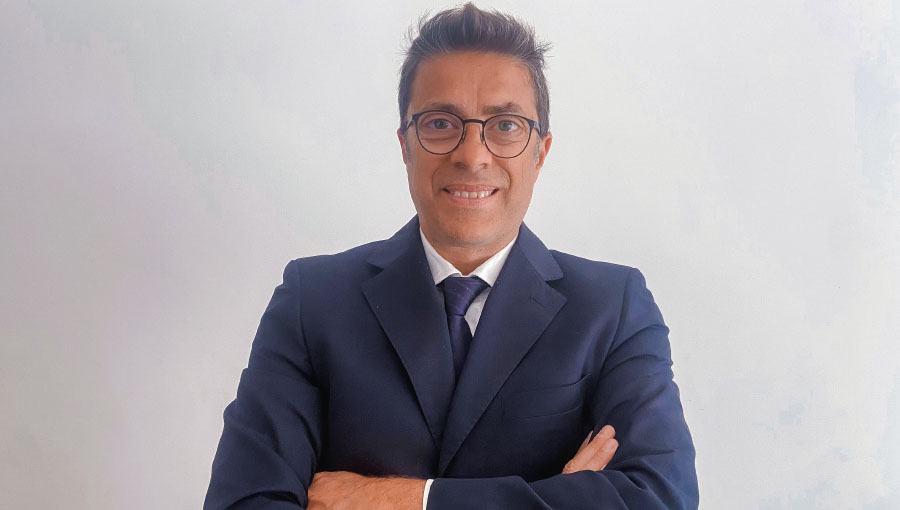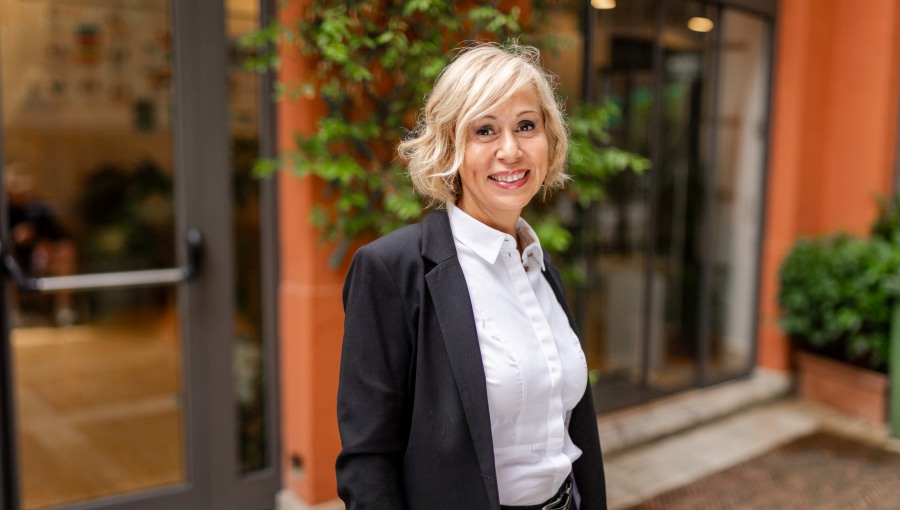Why History Matters: Professor Vanda Wilcox
Professor Vanda Wilcox graduated with a B.A. in Modern History from the University of Oxford, where she also completed a Master’s in Historical Research and a D.Phil. in History. Her research interests focus on the military, cultural and social history of the First World War in Italy, as well as the memory and commemoration of the two World Wars. She is also interested in sports history, particularly Italian football (soccer) culture. Dr. Wilcox teaches courses in European and Italian history in the nineteenth and twentieth century as well as on the World Wars, the history of imperialism, memory and popular culture, and modern sports history.
What brought you to Rome and John Cabot?
I first came to Rome during my Ph.D. research, as I began to work on the Italian experience of the First World War.
After completing my Ph.D. I won a Research Fellowship at Oxford, which paid for me to spend more time here working in the archives, and when that finished I knew I wanted to stay here in the city. So I applied for a position at John Cabot and started working here in January 2008.
When did you become interested in military history and in the World War I time period in particular?
As a teenager, I loved history of all periods and I also read a lot of historical fiction. I was very interested in the U.S. Civil War, for example, and the Tudor and Stuart periods of British history. But I also went with my mother to visit the battlefields of Belgium and northern France and became more and more interested in the First World War as a result; I started to read about the battles of that war and particularly about ordinary soldiers’ experiences, and from there I became fascinated by the human dimensions of conflict.
Living in the present, worrying about the future, why should we still be interested in the past?
Implicit in this question is ‘why does history matter?’ I’m not a big fan of the idea that history ‘teaches us’ things, generally. But what studying the past can do is offer us new ways to think about how political, social, cultural and economic structures work. Why do people behave in certain ways? Why do some states fail and others succeed? What are the political effects of economic crisis? How do political leaders represent themselves and seek to shape the public narrative? How do religious beliefs affect society? How do marginalized groups acquire – or lose – rights? What’s the impact of resource shortages on different social groups? These questions and many others are hugely relevant for today’s world, and while there is never one definitive answer, the study of history is an invaluable way to start thinking critically about the nature and function of human society and the human experience.
What was the one thing that surprised you the most when you were doing research for your book Morale and the Italian Army during the First World War?
On a practical level, learning how to do original research in the archives is endlessly surprising. First, you have to figure out the bureaucratic side, which is not always simple. Then when you sit down in front of a huge, disorganized file of original documents there is the intellectual challenge of working through the papers. Finally, to my surprise, there is also a considerable emotional element as you start to feel a connection with people who lived and died a century ago. It can be incredibly moving reading the letters and diaries of First World War soldiers, and as a historian, you need to balance that emotional, human response with the detached critical thinking necessary to analyze them as sources.
You are also working as a freelance journalist and write often on Italian football (soccer). What prompted your interest in football, especially Italian football?
I’m an Arsenal and AS Roma fan, and writing about and analyzing football came out of being a fan. When I moved to Italy and saw how incredibly different football culture and especially fan culture is here compared to Britain I wanted to explore why and how. Essentially Italian football developed in a completely different political and social setting right from the start, reflecting Italy’s distinctive values and traditions, strong local identities and distinctive youth culture, especially from the 1970s onward. The more I learned about that history, the better I could understand the messy, complex world of today’s calcio. It’s an area in which Italian ideas about national, regional and local identity, race, gender, honor, humor, participation, violence, loyalty, and tradition are all at play. From there I also began reading about sports history and sociology globally, so I now teach a course on sports history here at John Cabot.
What would you like students to take away from your classes?
I would like to think that students come away with more interest and enthusiasm for history and a greater understanding of its amazing variety and diversity. Often at school students have learned about history in a rather boring and limited way, so I hope to introduce them to just how many different approaches there can be.
Please tell us about a challenge you encountered in your professional career. How were you able to overcome it?
Honestly, the greatest challenge has been to juggle a reasonably intensive research and writing schedule with a heavy teaching load! But another issue which sometimes crops up is that despite the considerable number of women who research, write, and teach military history or war studies more generally, there are still outdated attitudes about who should be working in this field, especially from the public but sometimes from fellow professionals too. Happily, I’ve had excellent mentors and colleagues and one way to overcome this type of prejudice is simply to keep on doing the work as well as you can, while building more inclusive, diverse networks to help support other women in the field too.






